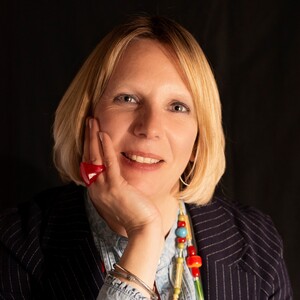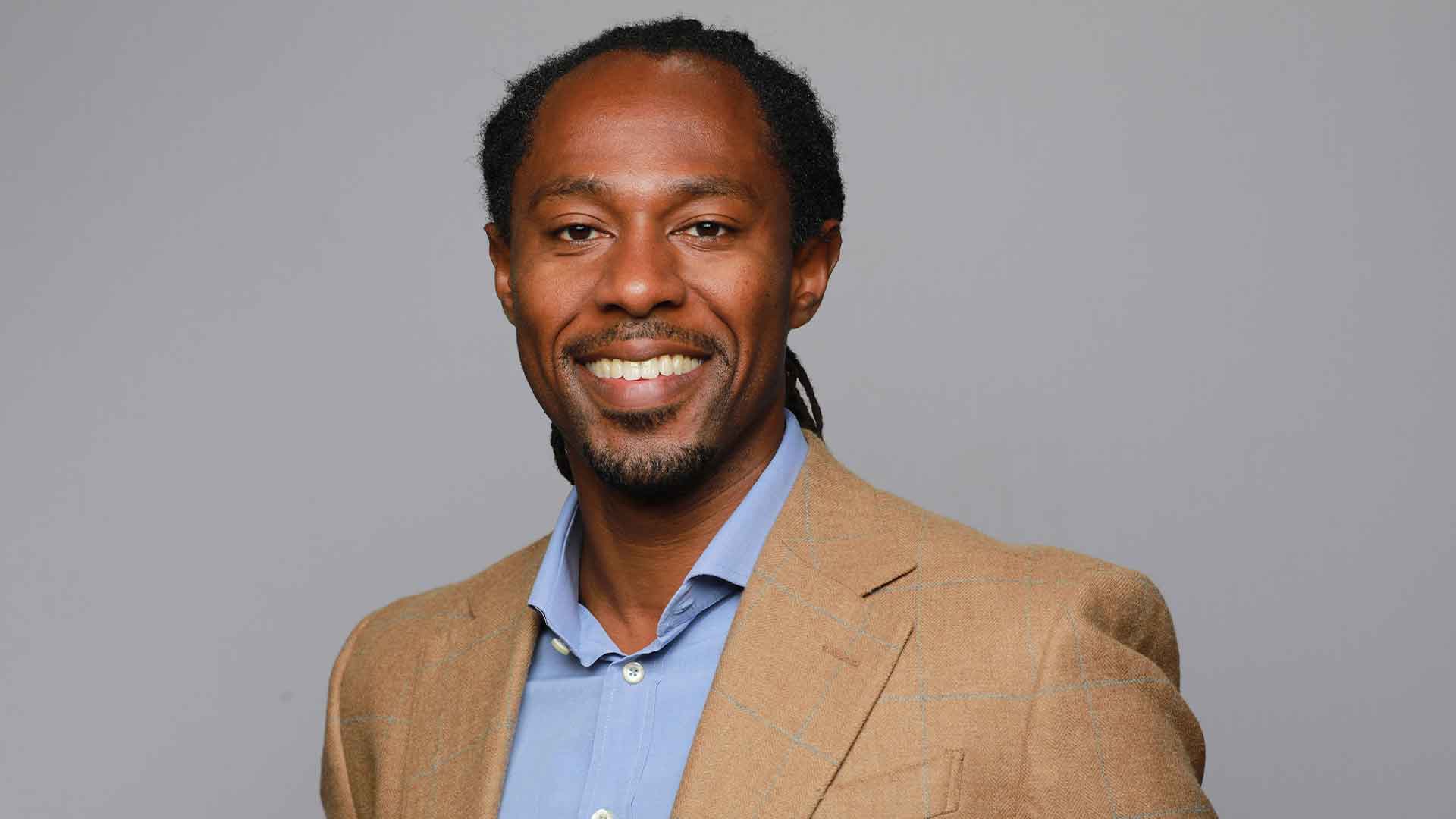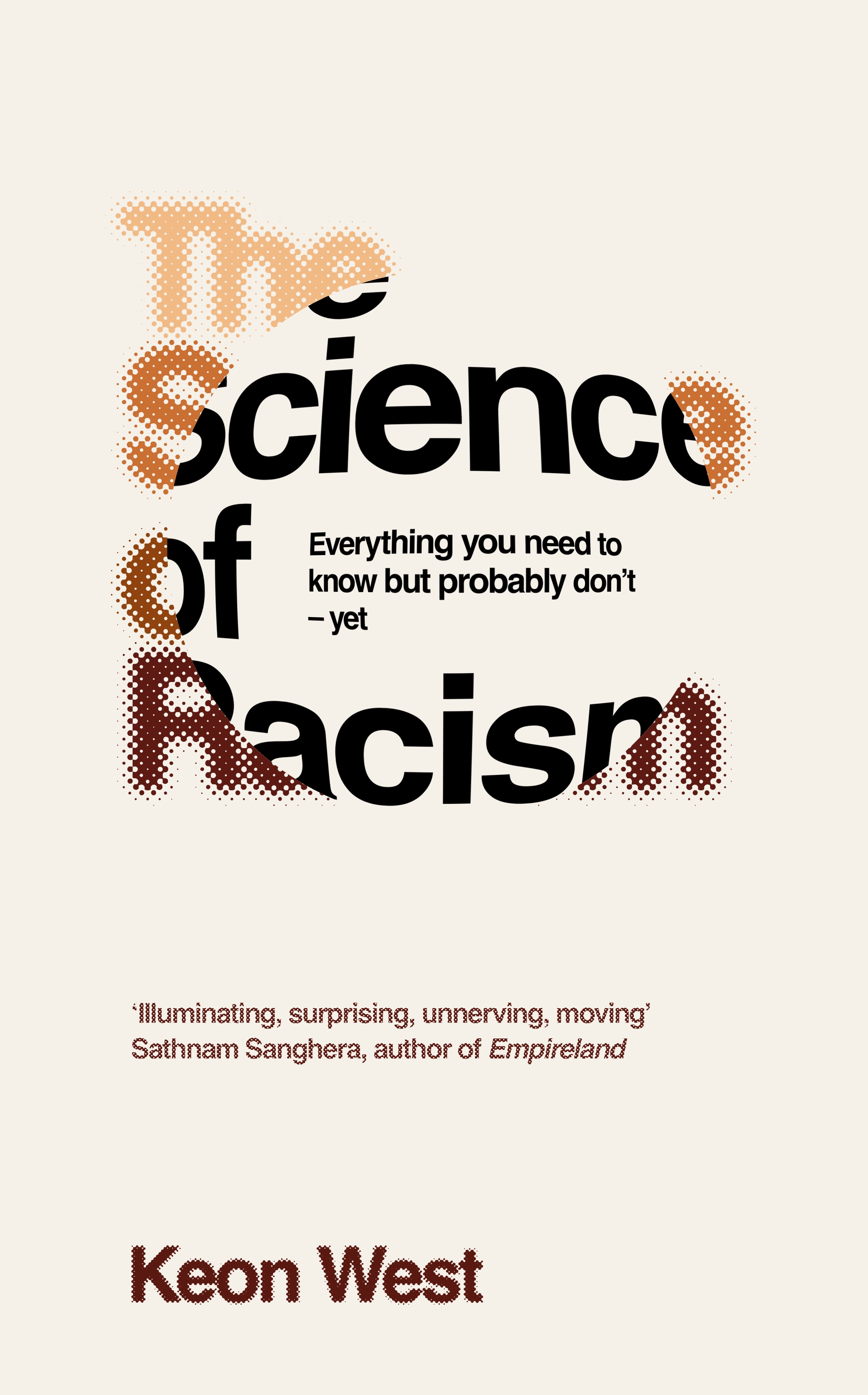You are viewing your 1 free article this month. Login to read more articles.
Keon West begins a much-needed conversation to end discrimination with The Science of Racism

Caroline Sanderson is Associate Editor of The Bookseller, and since 2000, the magazine's non-fiction previewer. In 2022 she was Chair of ...more
Keon West‘s exploration of the science of racism hopes to start a new conversation to end discrimination.

Caroline Sanderson is Associate Editor of The Bookseller, and since 2000, the magazine's non-fiction previewer. In 2022 she was Chair of ...more
"When I pitched this book to publishers, several people said: ‘We don’t want this. It’s going to be so boring. Instead, could you tell us about the time someone called you the N word?’ Why in the world would I do that? Of course people have called me the N word. But what does that prove? It’s just my life – it convinces no one of anything. What convinces people is the science because it’s the only factual grounding for conversations about racism.”
Professor Keon West, an experimental social psychologist at Goldsmiths, University of London, is talking about his book, The Science of Racism: Everything You Need to Know But Probably Don’t Yet. It’s a revelatory – and never boring – exploration of the science that much of the ongoing debate about racism ignores. West deploys decades worth of research to expose shocking empirical truths about racism: from its effects on relationships, healthcare and the criminal justice system to the fact that Black job applicants are up to 50% less likely to be called to interview than identically qualified white people. In short, West argues, “scientists figured out that ‘ordinary people’ do a lot of racist things, [since] a very long time ago”.
Born in Trinidad, the son of two doctors, West was raised in Jamaica and studied in the US, France and at Oxford University, where he did his doctorate as a Rhodes scholar. When we speak via video call, I ask him about the line in his acknowledgements in which he writes: “Thank you to my community in Jamaica who gave me a strong enough sense of who I am that I default to interpreting racism as a flaw in the other, rather than a shortcoming in myself.”
West elaborates. “Growing up, I was never given the impression that I was somehow less because of the colour of my skin. In fact, that idea was so fundamentally removed from my consciousness that I had to figure out that this was a thing that other people thought. I was a bright young man who did very well in school, the nerdy kid who wore glasses and watched a lot of ‘Star Trek’. I still watch a lot of ‘Star Trek’! But then, at 18, I left Jamaica with a bunch of scholarships and showed up in the US. And suddenly people started acting like I was dangerous. Suddenly people were asking questions like: ‘Should you be here?’ when I tried to get into the library (white students just walked in, unquestioned). And I began to think: ‘This is a bit weird. I’d like to understand what’s going wrong here.’”
Growing up, I was never given the impression that I was somehow less because of the colour of my skin
Such experiences were instrumental in West becoming an experimental psychologist whose research (he specialises in prejudice, including sexual orientation and sexual health as well as racism) is rigorously quantitative, and numbers-based. Coupling his own findings with an intimate knowledge of the research about racism that already existed, West became convinced that a knowledge of this longstanding data is essential if we are to banish racism. “But I feel like a lot of modern-day discussions about racism centre on issues like: how upset should I feel about this poem? Or how should I feel about golliwogs?”.
Given the sheer array of science that shows incontrovertibly that racism exists, I ask West why it is so seldom deployed. “I find that to be a deeply puzzling question. I honestly think it makes a lot of people very nervous on two fronts. To be hit in the face with the unassailable truth that racism is happening – people don’t like that. They would prefer to think that it’s historical and that it’s over; that as a society we’re perfectly fine and most of us aren’t racist at all. But I also think people are intimidated by the word ‘science’ and by any discussion of scientific experiments.” If you’re one of those intimidated people, let me reassure you that The Science of Racism – which focuses mainly but not exclusively on racism as it affects Black people – is eminently accessible, and even wryly funny in parts.
West also sets out why he believes many of our current attempts to curb racism are wholly inadequate. This is a book you must read if you’ve ever undertaken anti-bias training, decreed it for others, or think you’ve successfully identified your own biases.
Two chapters I found particularly compelling as a white reader centre on the inadequacy of the in-vogue term, “unconscious bias”; and why “colour-blindness” is a terrible idea.
West made me realise that ending racism has almost nothing to do with how racist white people judge ourselves to be or not to be, and everything to do with who has the power. “If I had to choose between living in a world in which every white person wanted to lynch me but none of them could, or a world where all of them could but none of them wanted to, I would definitely pick the former. Because power makes a difference. A white guy once said to me: ‘I’m not going to apologise for what my ancestors did!’. And I thought: ‘I am so uninterested in you, your ancestors or your apology!’ I’d like the jobs that were owed to me. I’d like the money I should have earned. I’d like the time that’s been wasted on racism. I want concrete things that will make my life better.”
Towards the end of the book, West sets out three things that demonstrably help reduce racism: intergroup contact (i.e. spending time with people of other ethnicities); education; and choosing reading and viewing material that does not reinforce stereotypes.
In person, West is both engaging and eloquent, and our conversation ranges from the prospect of Kemi Badenoch as Conservative Party leader (“I have family members who would love to see a Black woman leader of a major political party but I think she’s wrong about so many things”) to the ways in which publishing sometimes typecasts Black readers (“we like to read all sorts… we just really don’t like racism”).
Asked about his hopes for The Science of Racism, West says: “I’d like everyone to read it. And I don’t want people to think I’m trying to end any conversation about racism. I’m actually trying to start a truly useful one. One where we say: ‘That’s the problem! It’s the racism!’ We know what it looks like and we know how it operates. So now let’s fix it!”.










